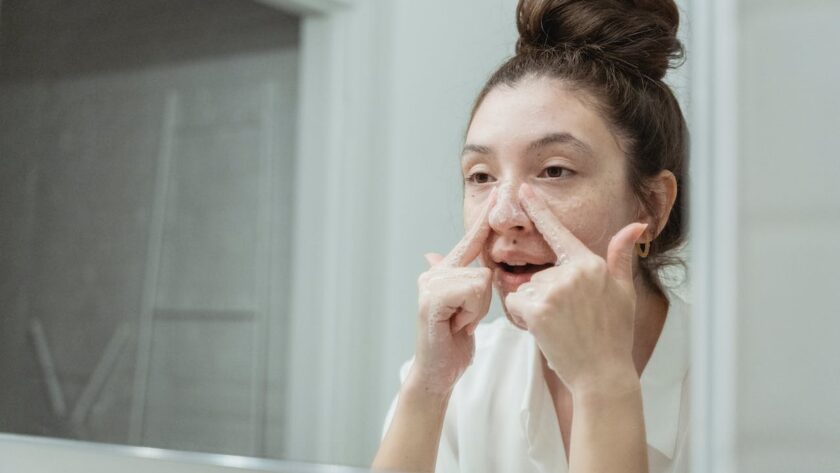Acne can be a persistent and frustrating skin condition, affecting people of all ages and backgrounds. While there is no one solution to this problem, a consistent and targeted skincare routine can significantly improve acne-prone skin. By understanding the underlying causes of acne and adopting the right products and practices, you can take control of your skincare journey and achieve a clearer, healthier complexion.
Understanding Acne:
Before diving into a skincare routine, it’s essential to understand what causes acne. Acne develops when hair follicles become clogged with oil and dead skin cells, leading to the formation of pimples, blackheads, and whiteheads. Factors such as hormonal changes, genetics, stress, and lifestyle habits can exacerbate acne.
Building a Skincare Routine:
A skincare routine for acne-prone skin should focus on three key steps: cleansing, treating, and moisturizing. Additionally, incorporating gentle exfoliation and targeted treatments can help address specific concerns such as inflammation and bacterial overgrowth.
Cleansing:
Start your skincare routine by cleansing your face twice a day, using a gentle, non-alcoholic cleanser. Look for products that contain salicylic acid, benzoyl peroxide, or glycolic acid, which can help unclog pores and prevent breakouts. Avoid harsh scrubbing or abrasive cleansers, as they irritate the skin and worsen acne.
Treating:
After cleansing, apply serum or treat your face and choose products containing active ingredients such as benzoyl peroxide, salicylic acid, or retinoids, which can help reduce inflammation, kill acne-causing bacteria, and promote cell turnover. Start with a lower concentration of active ingredients to minimize irritation, gradually increasing as your skin adjusts.
Moisturizing:
Moisturizing is crucial for acne-prone skin, as some acne treatments can dry out the skin. Opt for oil-free, non-greasy moisturizers that provide hydration without clogging pores. Ingredients like hyaluronic acid, glycerin, and ceramides can help restore the skin’s moisture barrier and prevent excessive dryness.
Exfoliation:
Incorporate gentle exfoliation into your skincare routine once or twice a week to remove dead skin cells and prevent clogged pores. Choose a chemical exfoliant with alpha hydroxy acids (AHAs) or beta hydroxy acids (BHAs), such as glycolic acid or salicylic acid, which can help improve skin texture and tone without irritating.
Additional Tips:
Practice good hygiene by regularly washing your pillowcases, towels, and makeup brushes to prevent the buildup of bacteria and oil.
Avoid touching your face throughout the day to minimize the transfer of dirt and bacteria to your skin.
Protect your skin from the sun by wearing sunscreen with at least SPF 50 daily, as some acne treatments can increase sensitivity to UV radiation.
Be patient and consistent with your skincare routine, as it may take time to see noticeable results. If you experience persistent or severe acne, consider consulting a dermatologist for personalized treatment options.



